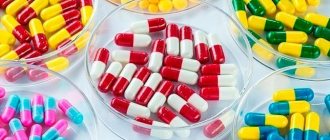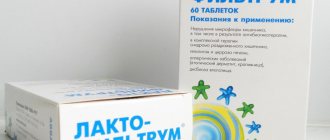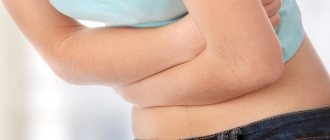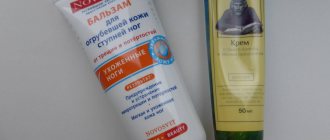When aching pain in a tooth appears, a person is simply unable to think about anything else, because this is one of the most unpleasant sensations. Moreover, it often happens that the pain begins at night or at times when dental care is not available (at the dacha, on a trip, etc.), and it is not possible to immediately see a doctor for treatment. Why does pain occur, and how to soothe an aching tooth before visiting the dentist?
Is it possible to tolerate toothache?
In case of short-term acute pain caused by sour or sweet food getting into the caries cavity, which goes away after rinsing and the irritant stops acting, a visit to the dentist can be postponed for a couple of days. This pain is typical for shallow caries and enamel erosion.
But it happens that the tooth hurts, and then it stops and the person does not seek medical help. In fact, the disease that provoked the appearance of unpleasant sensations becomes chronic, and the cessation of pain may indicate the death of the pulp, the transition of the pathological process beyond the boundaries of the tooth (asymptomatic process). Often the tooth subsequently has to be removed, and the inflammatory process spreads to other organs and tissues; in complex and advanced situations, conservative treatment is ineffective and surgical intervention is no longer possible.
Temporary relief of acute toothache is not a sign of recovery
Complications
By postponing an appointment with the dentist, you risk getting serious complications instead of one bad tooth:
- pulp necrosis – death and destruction of connective tissue cells filling the tooth cavity;
- periodontitis – after the death of the pulp, the process spreads beyond the tooth and inflammation of the tissues of the pulp chamber begins;
- abscess - a purulent process of the soft tissues of the oral cavity or the body of the jaw;
- phlegmon is a diffuse purulent process that spreads through the intercellular spaces of the soft tissues of the face, neck and chest.
When exactly do you need to see a doctor urgently?
A dental consultation is required if you have:
- pain does not go away within 24 hours (within 2 days if the pain appeared after removal, implantation, or surgical procedures);
- if pain of any intensity in the jaw is accompanied by fever and/or general malaise;
- an independent examination of the oral cavity revealed a gingival hood (redness, swelling of the gums) or purulent inflammation;
- the intensity of the pain syndrome gradually increases;
- bleeding gums and soreness.
Darkening of the tooth indicates destruction of its structure from the inside. Only a specialist can judge the true extent of the damage. The dental clinic “Yulistom” accepts patients seven days a week by appointment, and in case of acute toothache, emergency care is provided on the day of the call, we will accept you without a queue.
If your tooth hurts after nerve removal
Even several hours after removal of the nerve, pain may be felt in the damaged tooth - when pressing, when biting, or slightly throbbing. This is a normal reaction of the body to intervention.
What to do:
- Take one or two tablets of any painkiller - analgin, baralgin, tempalgin, pentalgin, dexalgin, paracetamol, nise.
- You can carefully anoint the gums with one of the gels - Cholisal, Metrogyl Denta, Kamistad, Solcoseryl.
If the pain does not subside or even intensifies, you will have to return to the doctor.
How to relieve acute toothache
To treat acute toothache at home, you can use the following groups of medications:
- Nonsteroidal anti-inflammatory drugs ( NSAIDs ) – (Nimesil, Nise, Nimesulide, etc.). Can be taken no more than 2 times a day.
- Non-narcotic analgesics of central and peripheral action - (Analgin, Pentalgin, Paracetamol, Ketorol, Ketanov, etc.).
- Local anesthetics – (Lidocaine, Novocaine, etc.). They are considered the most powerful medicines for relieving toothache.
Tablets for acute toothache
The tablets quickly and for a relatively long time relieve acute toothache. Many such painkillers are available without a prescription and can be found in home medicine cabinets.
Nimesulide
Packaging of Nimesulide
Nimesulide is an NSAID, a subgroup of sulfonanilides. Has anti-inflammatory, analgesic, antipyretic effect. Take with caution to persons with diseases of the gastrointestinal tract.
- How to take : 1 tablet after meals or dissolve the contents of 1 sachet in ½ glass of water, take after meals. No more than 2 times a day.
- Cost : from 40 rub. (10 tablets) and from 120 rub. (4 sachets).
- Manufacturer : Darnitsa, OZON Pharm, Akrikhin KhFK JSC, etc.
- Release form and dosage : tablets of 100 mg 10, 30 pcs. per package, granules for preparing a suspension 4, 10 and 30 bags of 2 g per package. For oral administration.
- Contraindications : allergic and other reactions to the drug in the past, inflammatory bowel diseases in the acute stage, concomitant use of other drugs from the NSAID group, a history of internal bleeding, blood clotting disorders, renal, hepatic, heart failure, children under 12 years of age, pregnancy and period lactation, intolerance to components.
- Dispensed : without a prescription.
Paracetamol
Packaging of Paracetamol
Paracetamol is an analgesic-antipyretic. Has an analgesic and antipyretic effect.
- How to take : 1 tablet after meals, no more than 4 times a day.
- Cost : from 10 rubles (10 tablets).
- Manufacturer : PFC Update, Pharmstandard-Leksredstva, etc.
- Release form and doses : tablets of 500 mg 10, 12, 20 pcs. packaged.
- Contraindications : allergic and other reactions to the drug in the past, intolerance to components, children under 6 years of age, acute renal, liver failure.
- Dispensed : without a prescription.
Analgin
Analgin packaging
Analgin is a peripherally acting analgesic-antipyretic, a pyrazolone derivative. Has an analgesic and antipyretic effect.
- How to take : 1 tablet after meals, no more than 2-3 times a day.
- Cost : from 50 rubles (10 tablets) and from 100 rubles. (10 ampoules).
- Manufacturer : RENEWAL, Update PFK JSC, Avexima Siberia LLC, etc.
- Release form and dosage : 500 mg tablets 10, 12, 20, 30, 50 pcs. per package, ampoules of 2 ml 10 pcs. packaging.
- Contraindications : history of allergic reactions and other reactions to the drug, individual intolerance, hematopoietic disorders, pregnancy and lactation, children under 15 years of age, depending on the age category and route of administration, acute renal, liver failure.
- Dispensed : without a prescription.
Ketorol
Ketorol packaging
Ketorol is a centrally acting analgesic-antipyretic, a derivative of pyrrolysine-carboxylic acid. Has analgesic and antipyretic effects.
- How to take : 1-2 tablets after meals, no more than 3-4 times a day.
- Price : from 30 rub. (20 tablets) and from 90 rub. (10 ampoules).
- Manufacturer : MAKIZ-PHARMA LLC, Dr. Reddy, with Laboratories LTD (India), etc.
- Release form and dosage : coated tablets of 10 mg, 20 pcs. per package, 1 ml ampoules 10 pcs. packaging.
- Contraindications : allergic reactions and other reactions to the drug in the past, intolerance to components, hematopoietic disorders, pregnancy and lactation period, diseases of the gastrointestinal tract in the acute stage, children under 16 years of age, depending on the route of administration and age category, acute hepatic, renal failure.
- Dispensed : by prescription.
What else helps with acute toothache
For attacks of severe acute pain, you can take other potent medications in the form of a topical powder or spray.
Nimesil
Nimesil sachets
Nimesil is an NSAID, a subgroup of sulfonamides. Has anti-inflammatory, analgesic, antipyretic effect. Take with caution to persons with diseases of the gastrointestinal tract.
- How to take : dissolve the contents of 1 sachet in half a glass of water, take after meals. No more than 2 times a day.
- Cost : from 700 rub. (30 packages), from 300 rub. (9 sachets).
- Manufacturer : BERLIN-CHEMIE.
- Release form and dosage : granules for preparing a suspension. For oral use. Package contains 9, 30 bags of 2 g.
- Contraindications : allergic reactions and other reactions to the drug in the past, inflammatory bowel diseases in the acute stage, concomitant use of other drugs from the NSAID group, a history of internal bleeding, blood clotting disorders, renal, hepatic, heart failure, children under 12 years of age, pregnancy and lactation period, intolerance to components.
- Dispensed : without a prescription.
Lidocaine
Spray Lidocaine
Lidocaine is a local anesthetic.
- How to take : 1 dose = 1 spray, locally no more than 1-2 sprays, or moisten a swab in a spray solution or ampoule and place it in the carious cavity. For children under 2 years of age, treat pain ONLY with a tampon!
- Price : from 20 rubles (ampoules) and from 300 rubles. (spray).
- Manufacturer : Egis Pharmaceutical Plant (Hungary), Ellara, Pharmasintez, etc.
- Release form and dosage : spray 50 ml for topical use, ampoules of 2 ml 10 pcs. packaging.
- Contraindications : allergic reactions and other reactions to the drug in the past, severe bleeding, individual intolerance, hypotension, bradycardia, pregnancy and lactation period, pathologies of the cardiovascular system, children under 16 years of age, depending on the route of administration and age category, older adults 65 years old.
- Dispensed : by prescription.
What pills should you not take?
Any medications should be taken strictly according to the instructions. Uncontrolled use of drugs can lead to complications such as stomach ulcers, gastritis, disorders of the liver, kidneys, and hematopoietic system. Before taking medications, you need to check their expiration date.
IMPORTANT! Do not take antibiotics for acute toothache without a doctor's prescription! Self-medication is dangerous!
You should not take any painkillers before visiting a doctor, because the medicine will change your symptoms and make it difficult to make a correct diagnosis.
Do not take painkillers before seeing a doctor!
Content:
- Types of tablets for toothache
- The most popular painkillers for toothache 2.1. Medicines based on nimesulide 2.2. Products containing ketoprofen 2.3. Preparations whose active substance is ketorolac 2.4. Medicines including dexketoprofen 2.5. Medicines containing flupirtine 2.6. Products containing mebeverine 2.7. Medicines containing ibuprofen 2.8. Products containing paracetamol
- When is it okay to use painkillers?
If a tooth aches, it’s difficult to distract yourself from it. The physical discomfort associated with this deprives a person of the opportunity to lead a normal life and forces him to take various medications. Often, to relieve toothache , people take strong drugs for a long time.
It is clear that this approach to the problem cannot be called correct. If there is a need to use a painkiller, then there is a serious dental problem. It needs to be eliminated. Making an appointment with a dentist is the best solution in such a situation. There is no need to look for which pills can help for a long time. Medicines only remove negative symptoms, but do not cure the disease itself. By postponing therapy until later, you can face severe complications and even edentia.
Treatment of acute toothache at home
It is undesirable to self-medicate and use traditional medicine methods to relieve even severe tooth pain, since they do more harm than good. The use of some techniques may cause complications. A striking example is the appearance of an abscess and phlegmon after the use of heat (“warming up” a sore spot) during an inflammatory process.
The best way out of the situation is to visit the dentist as soon as possible; as a last resort, take medication to relieve pain and then consult a doctor.
Some traditional methods that can be used:
- applying a cold compress to the cheek or a piece of ice to the sore tooth for a short time will somewhat reduce the pain (cold will constrict the blood vessels and slow down the rate of spread of inflammation). Be careful: do not allow cold to come into contact with the skin, especially for a long time, to avoid frostbite;
- rinsing with a solution of 3% hydrogen peroxide and water effectively fights pathogenic microflora and helps remove plaque, softening it. For the same purpose, rinsing with a solution of chlorhexidine and miramistin is effective;
- An alcohol compress on the tooth cavity somewhat reduces pain for a short time due to its analgesic effect and disinfection. Place a piece of cotton wool soaked in alcohol or vodka inside the carious cavity;
- rinsing with a solution of soda (1 tsp per glass of water) and/or salt (1 tsp per glass of water) reduces swelling and nerve compression by reducing osmotic pressure in the tissues. Effective for discomfort caused by eating. Rinse for 5-10 minutes;
- rinsing with infusion of chamomile and sage reduces inflammation and swelling of the gums. 2 tbsp. pour 1 cup of boiling water over the herbs and leave for 15-20 minutes. Rinse with warm infusion 4-6 times a day.
General recommendations for pain relief
The following tips will help relieve tooth pain:
- Do not concentrate on feeling unwell, try to distract your thoughts from it.
- Make sure that the disturbing part of the mouth is not clogged with food fragments. In addition to putting pressure on the inflamed area, pieces of food create a favorable environment for the life of pathogenic microflora. It is advisable to use a toothpick.
- The horizontal position aggravates the condition due to increased blood flow to the jaw. For dental problems, it is better to minimize bed rest (with the exception of high body temperature).
- Limit contact of food with the inflamed area of the mouth. When chewing food, try to use the healthy side.
- It is equally important to abandon the idea of using heat sources. High temperatures relieve discomfort for a short time. Heat can aggravate the inflammatory process if it is accompanied by the formation of a purulent focus.
Acute toothache due to diseases
Pain syndrome can appear against the background of diseases. If left untreated, they will lead to complications. The most common diseases that cause pain:
- Caries . With deep damage, acute pain appears when exposed to hot, cold food or water. Painful sensations when exposed to temperature indicate thinning of the wall of the caries cavity and the possible development of pulpitis.
- Pulpitis . Severe acute pain often intensifies in the evening and at night, has a pulsating character without clear localization, radiating to the temple or ear.
- Periodontitis . Acute pain when biting often indicates the development of this disease. Medications and folk remedies will not help with this pathology. Treatment will be long, labor-intensive and take place in several stages.
- Flux or abscess . They are characterized by acute throbbing pain, indicating the development of a purulent process. There is swelling in the oral cavity; in severe cases, the cheek may be swollen.
Sometimes there are situations when the teeth are healthy, but continue to “hurt”. This is possible in the presence of pathological conditions not related to the oral cavity:
- Oncological diseases of the maxillofacial region . The pain is tingling, with possible numbness and muscle weakness.
- ENT diseases . The pain radiates to the back of the upper and lower jaw.
- Maxillofacial neuralgia .
- Pathologies of the cardiovascular system (angina pectoris, myocardial infarction). The pain radiates to the angle of the lower jaw on the left.
- Migrenous , cluster and other types of headaches . Acute paroxysmal pain in the upper jaw on one side, behind the orbit, is often provoked by drinking alcohol.
- Patology of the temporomandibular joint . The mouth does not open completely; when moving the jaw, clicking, creaking sounds are heard, pain in front of the tragus of the ear.
If false, radiating pain is detected, we refer the patient to the appropriate related specialist who, after examination, will determine further treatment tactics.
Unconventional ways to relieve pain
It will be possible to enhance the analgesic effect of drugs and alternative remedies through Japanese massage. Dentalgia will decrease or be eliminated if you do the following:
- Massage vigorously the space between the nose and upper lip.
- First, apply a little pressure on the earlobe, then run your fingers along the edge of the ear. Repeat several times.
- Using light movements, massage the carotid artery located on the side of the problematic tooth.
To reduce dentalgia, regular chewing helps - use mint leaves, plantain leaves, and a piece of peeled ginger.
Acute toothache in pregnant women
Due to increased levels of acidity in the mouth and lack of nutrients, teeth are more susceptible to decay during pregnancy and lactation. But during such periods, when acute pain appears, it is extremely undesirable to take medications due to their toxic effects on the body of the fetus or child, including developmental defects. An urgent visit to a doctor is necessary to make a diagnosis and choose treatment tactics. To alleviate the painful condition, it is possible to use traditional methods of treatment.
IMPORTANT! St. John's wort herb should not be used due to its negative effect on the fetus and child!
What is prohibited?
- To prevent accidental washing of a blood clot from the socket, it is forbidden to rinse your mouth. To treat the cavity, oral baths are quite sufficient;
- Hot compresses are prohibited, this stimulates severe swelling, the development of inflammation, and bleeding;
- You cannot puff out your cheeks, blow your nose too much, or sneeze;
- It is forbidden to touch the wound with your fingers, tongue, or objects;
- You can’t eat hot, cold, irritating foods; preference is for soft, warm, neutral foods;
- you cannot smoke or drink alcohol for at least a week - tobacco and alcohol slow down tissue regeneration;
- Hypothermia and overheating must be avoided - going to the sauna, swimming pool, solarium is prohibited for 5-7 days;
- Do not take aspirin or other blood thinners;
- do not engage in active sports, do not subject the body to excessive physical or sports stress.
Acute toothache in children
The cause of acute toothache in a child can be simply a reaction to sweet, sour, cold and hot foods, or pulpitis or caries. An urgent visit to a doctor is necessary. To alleviate the condition, you can give your child Paracetamol or Ibuprofen in a dosage corresponding to the age norm, or children's Nurofen. Taking other painkillers is highly undesirable due to the large number of side effects.
Acute toothache worsens at night
Wound healing
Their main purpose is to accelerate natural regeneration and stop the inflammatory process. Used in dentistry for the treatment of injuries in the following cases:
- surgical intervention, for example, when removing a chewing element or surgery on bone tissue;
- in the presence of ulcers, fistulas, ulcers and necrosis;
- mechanical injury;
- for burns of the mucous membrane (for example, hot food or drinks).
Also indicated for a complex of therapeutic procedures. For example, in case of periodontal damage, pain-relieving ointment for gums Levomikol or Parodontocyte is often used for restoration and accelerated regeneration.
Attention! Almost all of the above medications are over-the-counter, but the choice of a specific drug should only be made by a doctor. Particular care must be taken when using anesthetic dental gel for infants.
Prevention of acute toothache
To prevent the occurrence of acute toothache, preventive measures are required, and if the first signs of discomfort or visible changes in the appearance of the tooth or oral mucosa appear, you should consult a doctor.
Preventive measures include:
- brushing teeth twice a day;
- using dental floss, brush or irrigator;
- preventive visit to the dentist every six months. This will allow you to cure caries at the initial stage and prevent the development of complications;
- quitting smoking – tobacco smoke changes the biochemical composition of saliva and promotes the formation of dental plaque;
- refusal of sweet and soft foods: sugar is a substrate for feeding microorganisms, and when eating soft foods, natural teeth cleansing does not occur.
Following these simple rules and promptly contacting the doctors of our clinic will preserve your health and save your budget. After all, it is easier and more financially profitable to prevent a disease than to treat it later! And the question of how to relieve acute toothache will no longer arise.
FAQ
1. Does it make sense to put a tablet on a tooth? No. Analgesics and NSAIDs in tablet form have a central and peripheral effect, reaching the site of application through the bloodstream.
2. What to do if you take a pill and the pain does not go away? How many tablets can I take? If the maximum permissible dose indicated in the instructions does not help, you should immediately consult a doctor.
3. What to do with acute toothache that appears at night? To relieve acute toothache at night, it is recommended to contact a 24-hour dental clinic. Of course, it will not be possible to carry out full treatment at night, but you will receive palliative care to relieve pain. In the absence of a 24-hour clinic, you need to take a minimum dose of pain medication, and be sure to consult a doctor in the morning.
4. What pills or folk remedies will cope with acute toothache faster? Non-steroidal anti-inflammatory tablets and analgesics will help quickly cope with toothache (Analgin, Tempalgin, Nise, Baralgin). Traditional methods can only act as an aid to combat pain, but according to reviews, rinsing with a solution of soda and salt helps the most.
Remember that pain medications do not eliminate the cause of acute pain.
They relieve the symptom. To eliminate the cause of the pain, a visit to the doctor and proper treatment are necessary. Contact our specialists! Moscow metro station Zvezdnaya, Danube Avenue, 23
Disadvantages of tablets
Painkillers also have a downside: almost all pills have side effects.
- Negatively affect the functioning of the digestive system. Erosion and ulcers can form on the walls of the stomach, so if there are problems with the gastrointestinal tract, it is better to choose a different method.
- Disturbs liver function.
- They can cause headache, shortness of breath, swelling, skin rashes, etc.
Most analgesics are prohibited for expectant and nursing mothers, young children and people with systemic diseases that are included in the list of contraindications. Therefore, it is recommended to consult a doctor before use.











